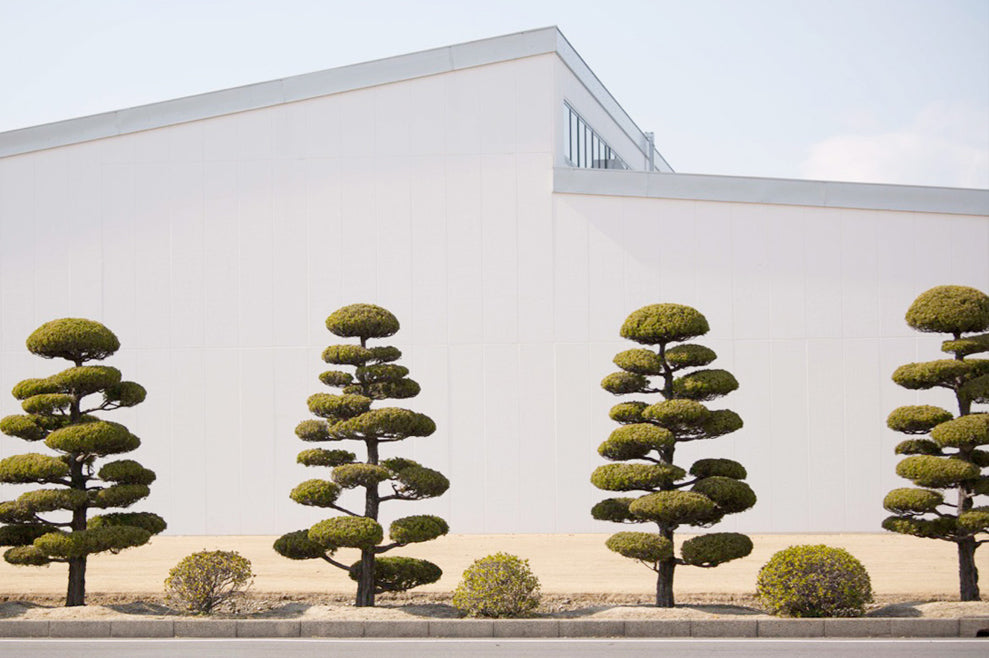
The World of Karimoku Cat, Part One
In this article, we aim to provide insight into the rich heritage and meticulous craftsmanship that define Karimoku Cat. As sellers of the Karimoku Cat brand, Made Moggie is committed to unveiling not just the products but also the deep-rooted history of its parent company, Karimoku. In a series of blogs we will delve into the history, values, and the painstaking work that goes into crafting this exceptional cat furniture. Join us in discovering the fascinating story behind these handmade, solid wood creations.
Karimoku Cat is sold in Australia through Made Moggie
About Karimoku Cat
Karimoku is the biggest wood furniture company in Japan
Karimoku Furniture Co. serves as the parent company to Karimoku Cat, with a core focus on wood furniture manufacturing. Founded in 1940 and headquartered in Japan, this distinguished enterprise boasts a global presence, distributing its furniture to 25 countries through a network of 142 esteemed partners. Comprising 28 sales offices, 26 showrooms, 7 state-of-the-art factories, and its own wood mill, Karimoku embodies a legacy steeped in excellence.
Tracing the History of Karimoku
The history of Karimoku harks back to 1940s Japan when it emerged as a modest woodworking establishment in the Aichi Prefecture. Locals bestowed upon it the name 'Karimoku,' a fusion of "Kariya," their town's name, and "mokuzai," the Japanese term for wood.

Kariya, Aichi in 1940
Initially, the company supplied timber to its neighbour, Toyota, a partnership that catalysed Karimoku's evolution in woodworking techniques and technology. By the 1950s, they ventured into crafting textile spinning machines and sewing machine tables.
Karimoku is a third-generation, family run business
Cultivating Mid-Century Style Furniture
Karimoku's creative journey continued with forays into crafting piano keyboards and stereo consoles. These endeavours demanded impeccable precision, craftsmanship, and, notably, style. Their inherently Japanese design aesthetic resonated with the emerging mid-century modern movement, characterised by simplicity and space—a design ethos synonymous with post-war American architecture. Thus, it was only fitting that Karimoku's inaugural export to the United States in the 1960s was a chair emblematic of this era.
Karimoku was forging a path in the world of furniture, culminating in the local launch of its furniture line in the 1960s. This marked a pivotal moment, shaping the enduring style and values that define the company to this day.

D Chair & D Table by Karimoku60
The High-Tech, High-Touch Ethos
Central to Karimoku's philosophy is the high-tech, high-touch approach to crafting wooden furniture. Cutting-edge machinery dominates the factory floor for precision woodwork, while skilled artisans meticulously complete all finishing touches, such as painting, by hand. This intimate connection with the wood allows for the detection and rectification of any imperfections.

A Karimoku Craftsman © 2021 Tomooki Kengaku
Karimoku maintains an active presence within the local community by providing employment opportunities to numerous young individuals who embody both the future of the company and a shared affinity with Karimoku's youthful customer base. A substantial portion of these employees plays a pivotal role in the company's wood mill operations, a facility with a history dating back to the 1990s, dedicated to oak processing for international export.

High-tech, high-touch © 2021 Tomooki Kengaku
Championing Forest Conservation
Karimoku sources a diverse range of wood from across the globe, including walnut wood from the United States and beech wood from Europe. However, an overwhelming 99% of their oak wood originates locally from Hokkaido.
Karimoku can trace wood back to the very person who felled the tree
In their commitment to safeguarding these forests, Karimoku not only carefully oversees tree planting and utilisation but also pioneers innovative approaches in wood and product design. These initiatives enable the creation of furniture from smaller trees that were once considered suitable only for paper production.
Furthermore, Karimoku maintains a strict stance against illegal logging, ensuring the integrity of their sustainable sourcing practices.
Repurposing the Rubber Tree
In an innovative approach to sustainability, Karimoku utilises the rubber tree, traditionally discarded after its latex production cycle ends. Typically, the tree's wood is deemed unsuitable for furniture due to its characteristic "fluff." Karimoku's technological know-how has enabled them to incorporate this overlooked resource into their furniture production, thereby preventing waste.
Their commitment to resource conservation extends to recycling wood offcuts, as evidenced by their collaboration with Shiseido in repurposing wood scraps for the packaging of the skincare brand Baum, an effort that recently earned an iF Design award. Baum, in turn, actively participates in forest conservation and oak tree planting initiatives.
Karimoku's approach honours the tree by granting it an extended, purposeful life.

Baum Skincare Packaging Uses Recycled Wood Offcuts
Exploring Karimoku's Diverse Brands
Karimoku proudly encompasses three distinct brands: Karimoku Cat, Karimoku60, and Karimoku New Standard (KNS).
Karimoku Cat
Among these, our cherished favorite, Karimoku Cat stands as a collaborative venture with the renowned cat furniture specialist, RINN. Within this range, you'll discover the signature Karimoku style, characterised by various oak tints, modular designs for easy maintenance, and compact layouts ideal for smaller homes. Notably, the Karimoku Cat Tree earned the prestigious iF Design Award.

Karimoku Cat is sold in Australia through Made Moggie
Karimoku60
Launched in 2000, Karimoku60 pays homage to the aesthetics of 1960s furniture. This brand features numerous original 60s designs by Karimoku, including the timeless 'K Chair.'

K Chair by Karimoku60. The brand designs for small homes
Designed for export, its replaceable components and enduring design have ensured its popularity throughout the years. Karimoku's commitment to longevity is evident in their furniture, which is modular, height-adjustable, reconfigurable, and designed for easy maintenance, devoid of built-in obsolescence.
Karimoku New Standard (KNS)
Sold in Australia through Stylecraft Karimoku New Standard revolves around two fundamental concepts: crafting furniture from small, thinned-out trees and collaborating with overseas designers. Unlike traditional practices in Japan, where small trees were exclusively used for paper production, Karimoku designs their KNS brand with small trees in mind. This distinctive approach contributes to the revitalisation of Japan's forestry industry. Collaborating with overseas designers, who dont have inside production knowledge, allows them to design without limitations, resulting in truly innovative creations.

KNS Furniture, featuring Elephant Sofa 3-Seater Bench
Karimoku's Collaborations Beyond Borders
Karimoku extends its collaborative spirit to diverse industries:
Roland Digital Piano
Karimoku meticulously handcrafts all wooden components for the stunning Roland Digital Piano, available in four exquisite finishes.

The KIYOLA KF-10 Digital Piano
Be@rbrick Wood Toy
A partnership with Medicom has yielded a limited-edition, handcrafted wood toy, Be@rbrick. This luxurious creation showcases Karimoku's diverse woodworking techniques, employing various shades and colors of wood to form intricate patterns. The Be@rbrick transcends conventional toys, emerging as a collectible art form and expression.

Karimoku & Medicom Be@arbricks
Some collectors have paid hundreds of thousands of dollars for Bearbricks
The Be@rbrick featured below stands at two feet in height and took Karimoku artisans months to craft. Employing the special carving technique known as Yosegi-zukuri, it retails at $12,000 AUD.

Our next session will unveil Karimoku's intricate painting process. Stay tuned for Part Two of this blog series.


